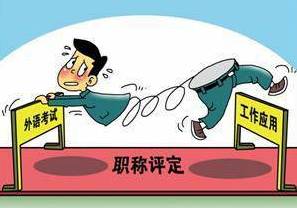A recent policy change by top authorities means that people seeking higher ranks in technical and professional fields will no longer need to pass an English language test as part of the promotion process.

Yu Hao, a teacher at New Oriental Education And Technology Group which trains people to take the test, said it had long created a headache for many people, especially older ones working in positions that did not benefit from English language skills.











